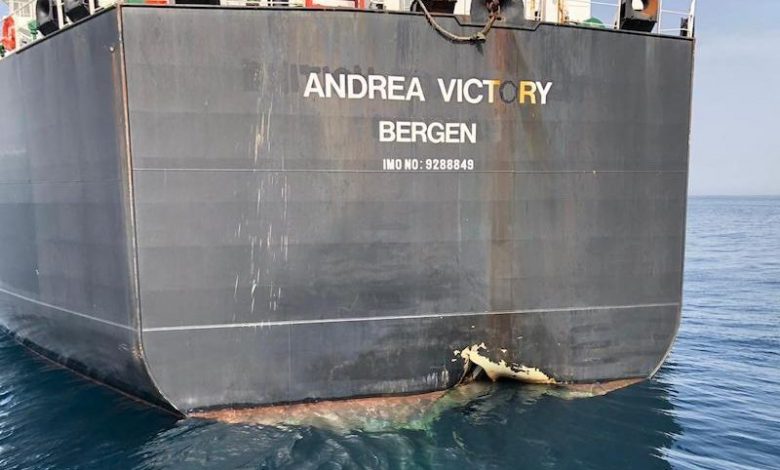Lloyd’s warns of ‘significant claims’ from Fujairah attacks

Citing the scant information available at present, the Joint War Committee (JWC), which comprises underwriting representatives from both the Lloyd’s and International Underwriting Association company markets, has pushed back making a decision on adding a war risk premium in and around the waters of Fujairah until Monday.
The JWC held an extraordinary meeting in London on Thursday to discuss the deteriorating security situation in the Gulf on the back of four tankers suffering attacks on Sunday and a Saudi pipeline reportedly hit by armed drones on Tuesday.
The United Arab Emirates (UAE) is conducting an investigation into the tanker attacks with the US and France, the findings of which are expected to be revealed as early as this weekend with authorities at Fujairah port desperate to get operations back to normal. A number of shipping companies have this week rerouted their ships to avoid stopping at the UAE port, one of the world’s largest bunkering hubs.
In a statement the JWC acknowledged the damage to the four tankers is substantial as first reported by Splash.
“Very little information is to hand about the explosions at Fujairah anchorage on 12th May and the circumstances and methods employed remain unclear. There is no doubt that considerable damage was done and there will be significant claims. The JWC has met to review the situation and will reconvene next week to assess further as more information becomes available,” the statement posted on the Lloyd’s Market Association read.
Footage seen by Splash shows gashes in the sterns of each of the four ships just below the waterline, ranging in size from 2 to 3 m across.
Speaking with Splash, Jake Longworth, a senior intelligence analyst at security firm EOS Risk Group, said his company felt the attacks last Sunday were a one-off.
“EOS assess that these incidents likely constituted a one-off strike designed to deliver a statement, making further attacks in the immediate term unlikely. If Iran were behind the attacks, they will understand that any additional action is likely to prompt US-allied military retaliation, which, for all Tehran’s aggressive rhetoric, is not in their best interests. That said, uncertainty over the identity of the threat source inhibits a well-informed assessment,” Longworth said.
If the current level of tension between the US, its allies and Iran persists or increases, Longworth warned further attacks in the broader Gulf region, and in the Red Sea off Yemen, are a “credible risk” in the medium to long-term, with commercial shipping remaining vulnerable.
“This risk is likely to mainly impact tankers, especially those with US, Saudi, UAE or allied associations,” Longworth predicted.
السفينة "أمجاد" من السفن الأربعة التي تضررت في الفجيرة أثناء إستهدافها.
شاهد أضرارها من تحت الماء .#جنودنا_يقصفون_مليشيا_ايران pic.twitter.com/4QaRrlQESP
— هاني الصفيان (@H_alsufayan) May 16, 2019

Oops, it looks like the pumproom is full of water.